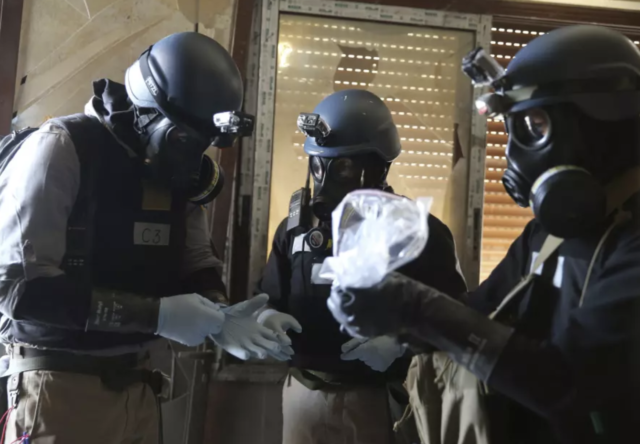Belgium’s federal customs administration announced this week that it had filed charges against three companies for exporting chemicals to Syria that can be used in the production of sarin nerve gas and other prohibited substances. The court filing echoes concerns U.S. concerns that other European firms have sold dual-use technologies to the perpetrators of indiscriminate killings of civilians in Syria.
A spokesman for Belgian government said there was no evidence that the chemicals were used to make any weapons. However, export restrictions have been in place since 2013, when Damascus agreed to deal to surrender its chemical weapons to the international community.
According to a court filing, the three Flemish companies involved in the suit include AAE Chemie, a chemical company, and Danmar Logistics and Anex Customs, two transport agencies. Between May 2014 and December 2016, the firms worked cooperatively to make 24 deliveries to Syria and Lebanon all without a proper export license and failing to list chemicals on customs declarations. These shipments contained 168 tons of isopropanol, a compound found in home products such as rubbing alcohol but sold at an industrial concentration suitable for chemical weapons productions. Isopropanol and methylphosphonyl difluoride are the two primary ingredients to Sarin.
Additionally, the firms also exported 219 tons of acetone, 77 tons of methanol and 21 tons of dichloromethane in these shipments.
A statement from the accused companies claims that chemicals went to a private buyer that operates “paint factories and leather processing factories in Syria, Lebanon, Jordan for 15 to 20 years.” The firms also claim that customs officers never raised any concerns during export inspections. A court in Antwerp will begin hearing the case on May 15.
Meanwhile, the U.S. government repeated a warning to German company Krempel after components it sold to Iran were found in rockets used to chemical attack against Syrian civilians in January and February. Krempel claimed to abide by legal frameworks, but U.S. Under Secretary of the Treasury for Terrorism and Financial Intelligence Sigal Mandelker cautioned that “There continue to be ongoing risks with doing business there because the Iranians have not reformed their system.”
France also sanctioned 25 people and companies earlier this year for their support for Syrian chemical weapons program.
Forces loyal to the Syrian government have launched a series of high-profile sarin gas attacks against civilians, including one in the eastern Ghouta province earlier this month that killed at least 70 people and prompted a U.S. military response.






